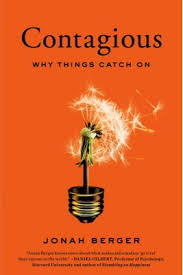PB&J: Picture Books and All That Jazz: A Highlights Foundation Workshop
Join Leslie Helakoski and Darcy Pattison in Honesdale PA for a spring workshop, April 23-26, 2015. Full info here.COMMENTS FROM THE 2014 WORKSHOP:
- "This conference was great! A perfect mix of learning and practicing our craft."�Peggy Campbell-Rush, 2014 attendee, Washington, NJ
- "Darcy and Leslie were extremely accessible for advice, critique and casual conversation."�Perri Hogan, 2014 attendee, Syracuse,NY
As 2014 events unfolded in Ferguson, Missouri and in New York City over race relations, I watched with a storyteller’s eye. That’s not to make light of the events–which have sparked massive debates and outrage. Rather, I put on my writer’s glasses and tried to evaluate the news reports AS A WRITER.
Conflict on Every Page: What Kind of Conflict?
Many writing teachers drum it into their students heads: conflict on every page.
What they mean is that something has to happen on every page that makes the situation worse for the characters. Storytelling is about the problems of life, not the happy moments. Happiness is only possible when thrown into relief by contrast with the bad stuff.
This can easily go wrong: after a writing class where conflict was encouraged, one writer added “conflict” by having a wild creature attack a main character; but in the next scene, the character easily escapes and nothing was different. That’s adding in conflict just for the sake of conflict and that’s off-target. Instead, conflict should be integral to the story and make the characters’ lives different in some way.
 Recently, I found insight into this from a surprising source. In his book, Contagious: Why Things Catch On, Jonah Berger says that things go viral easier when people are met with moments of high arousal. That sounded suspiciously like “conflict on every page.” Berger backs up his claims with various psychological studies (you should read his book for details). The high arousal moments included positive emotions: excitement, awe, inspirations, humor. But they also included negative emotions: anger, disgust, anxiety, and especially outrage.
Recently, I found insight into this from a surprising source. In his book, Contagious: Why Things Catch On, Jonah Berger says that things go viral easier when people are met with moments of high arousal. That sounded suspiciously like “conflict on every page.” Berger backs up his claims with various psychological studies (you should read his book for details). The high arousal moments included positive emotions: excitement, awe, inspirations, humor. But they also included negative emotions: anger, disgust, anxiety, and especially outrage.
In his book, Berger gives examples of Outrage, including one about mothers who carry babies in a special sling. In 2008, the practice was celebrated with the inaugural International Babywearing Week. McNeil Consumer Healthcare, the company who makes Motrin pain medication wanted to support the event. According to Berger, they figured that carrying babies in a sling was great for the mother-child relationship; however, they also thought that it would cause strain on mother’s backs and they would need pain-relief. The advertisement they created, however, caused outrage!
The advertisement implied that mothers wore babies as “a fashion statement,” and it implied that babywearing looked “crazy.”
Outrage swept through the mommy-bloggers. And of course, OUTRAGE brings us back to Ferguson and the problems of racial relations in the U.S. Outrage–as a storytelling element–has been evident in almost every report I saw on the incident.
It’s not redundant to say this: the events in Ferguson were outrageous; the outrage at the events made the news stories successful. So successful that I later heard a radio interview with protestors in Hong Kong who were asked about relations with the police there in Hong Kong. The protestor answered that the relations were just as strained as those between police and citizens in Ferguson. In other words, the outrage–the negative emotional response to events–has been so strong that it has been reported worldwide and has become a symbol of difficult police reactions. That’s the power of outrage in storytelling.
In your story, can you find a place to add outrage? If you can, your story will be stronger.



